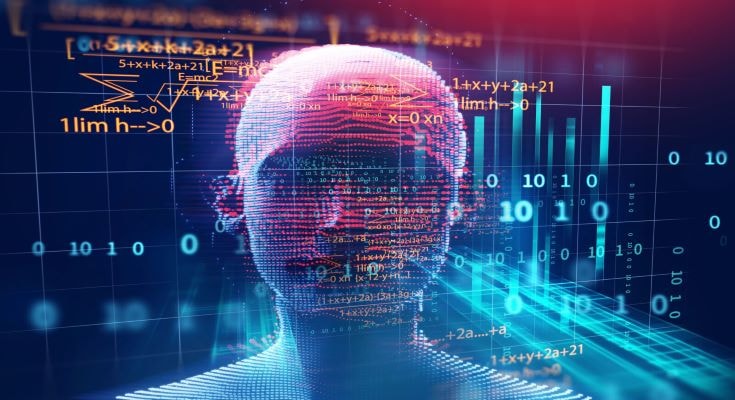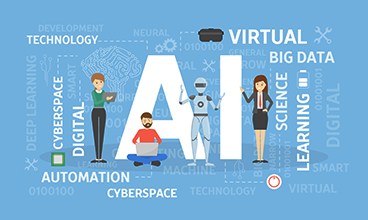Empathy To Longevity: How AI Is Helping Humans Live A Healthy Life
Published By :
Across the globe, researchers, doctors and social scientists are rallying to use AI systems to increase human lifespan and improve the quality of life. Last week, Indian think tank NITI Aayog and tech giant Microsoft India forged a partnership to leverage AI-based solutions in healthcare. The Redmond giant will help the Indian think tank in pushing the use of AI, cloud and research and develop vertical expertise in new initiatives and solutions in healthcare. As of now, 63% of healthcare executives worldwide actively invest in AI technologies, and 74% say they are planning to do so, a PwC study reveals.
AI In Medicine and Healthcare
According to an Accenture survey, AI is being touted as a revolutionary mechanism for medical and healthcare verticals. The survey findings indicate that the annual growth rate of AI healthcare market is 40% and it is set to increase every year.
“A powerful technique is to combine NLP, which extracts information from unstructured data and ML, which analyses structured algorithms. This systematic procedure enhances clinical expertise for precise diagnoses, accurate monitoring and recovery detection of the patients. The AI ingestion proves precise up to 90% as according to a survey conducted by Intel,” said Sahil Chopra, CEO and founder at iCubesWire.
There is also a broadening of AI use cases in healthcare that goes beyond predictive medicine and chatbot deployments. AI is increasingly being leveraged as an empathetic virtual caregiver. Case in point is that of Gus Newman, an autistic person who found talking to Siri extremely therapeutic. This underscored the immense potential of AI as a virtual caregiver.
Aakrit Vaish, co-founder of Haptik says, “AI-based products are a great source of help for patients and their near and dear ones. From providing information regarding various ailments, facilitating engagement with the right service providers to providing comfort, AI-driven chatbots can serve diverse functions in the domain.”
Detecting Depression With AI
Vaish added that with the development of neural network programming, chatbots can even help detect depression or bipolar disorder, as the current diagnostic practices often do not yield precise results. “In the future, we see AI playing a pivotal role, serving as personal therapists, medical assistants and counsellors to ensure a healthy and happy life,” he added.
Machine learning and AI can also aid medical practitioners in diagnosing and treating various ailments. In fact, virtual assistants, chatbots, and conversational AIs are proving to be an excellent support to healthcare professionals, added Abhinav Krishna, co-Founder and CEO at OurHealthMate.
AI Ushers In Evidence-Based Medicine In India
Prasad Komapalli co-founder and CEO of mfine said, that with AI, medicine is becoming more data-driven and evidence-based. It is, therefore, is able to scale massively and reach everyone. As mobile apps, wearable devices collect a great amount of health data, the AI systems’ ability to see patterns is aiding early detection of diseases and epidemics.
“In medicine, early detection helps dramatically change the economics and health outcomes for individuals.”
IN CANCER, FOR EXAMPLE, DETECTION AT AN EARLY STAGE CAN HELP INCREASE THE LIFE EXPECTANCY BY 4 TIMES AND REDUCE COSTS BY 10 TIMES.
“Now clinicians are able to be more effective in treating patients as AI is fast becoming the de facto method to accurately diagnose from data such as radiology images, pathology findings, patient-reported symptoms and wearable collected data,” he added.
Recently, the Union Ministry of Health and Family Welfare has proposed a law called Digital Information Security in Healthcare Act (DISHA), to govern data security in the healthcare sector. This would give individuals complete ownership of their own health-related data. Under DISHA, citizens would have the right to regulate the data to be generated, collected, accessed, transmitted or used. This would include insurance companies, employers, human resource consultants and pharmaceutical companies as well.
Conclusion
Artificial intelligence and the human body have a symbiotic relationship. Be it intelligent chatbots like Woebot to fight depression or robotic nurses in Japan, AI is being used to make the quality of human life better.
Along with AI, tech giants have now started using neural networks to test out products, services and even gadgets virtually before physically testing them out on humans. Potentially life-threatening tests like safety testing in vehicles and in manufacturing machinery usage are now being minimised by the same.



